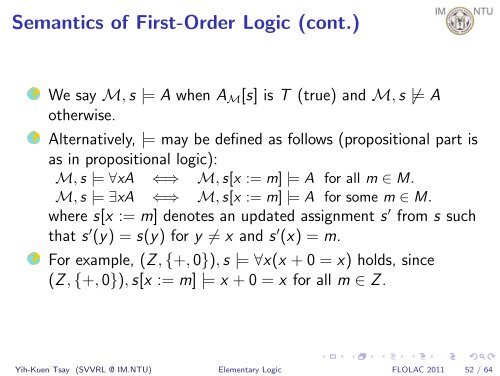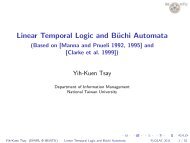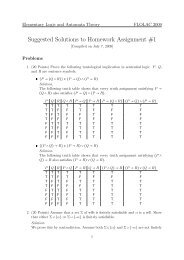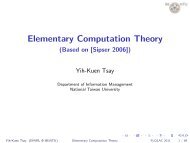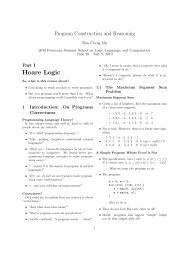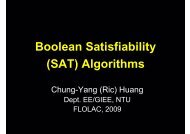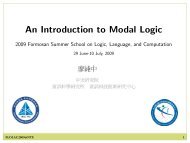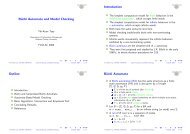Elementary Logic
Elementary Logic
Elementary Logic
Create successful ePaper yourself
Turn your PDF publications into a flip-book with our unique Google optimized e-Paper software.
Semantics of First-Order <strong>Logic</strong> (cont.)<br />
We say M, s |= A when A M [s] is T (true) and M, s ̸|= A<br />
otherwise.<br />
Alternatively, |= may be defined as follows (propositional part is<br />
as in propositional logic):<br />
M, s |= ∀xA ⇐⇒ M, s[x := m] |= A for all m ∈ M.<br />
M, s |= ∃xA ⇐⇒ M, s[x := m] |= A for some m ∈ M.<br />
where s[x := m] denotes an updated assignment s ′ from s such<br />
that s ′ (y) = s(y) for y ≠ x and s ′ (x) = m.<br />
For example, (Z, {+, 0}), s |= ∀x(x + 0 = x) holds, since<br />
(Z, {+, 0}), s[x := m] |= x + 0 = x for all m ∈ Z.<br />
Yih-Kuen Tsay (SVVRL @ IM.NTU) <strong>Elementary</strong> <strong>Logic</strong> FLOLAC 2011 52 / 64


